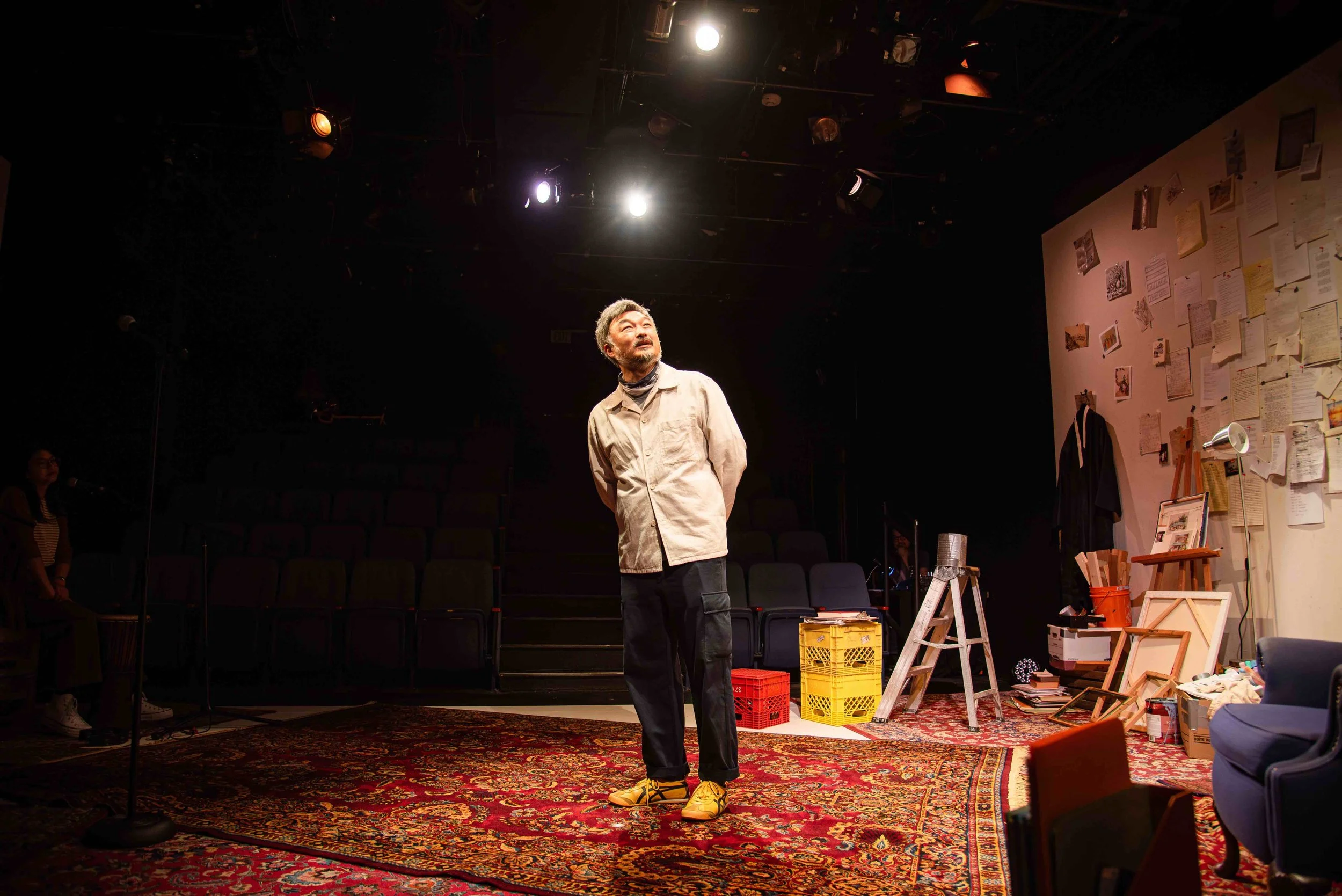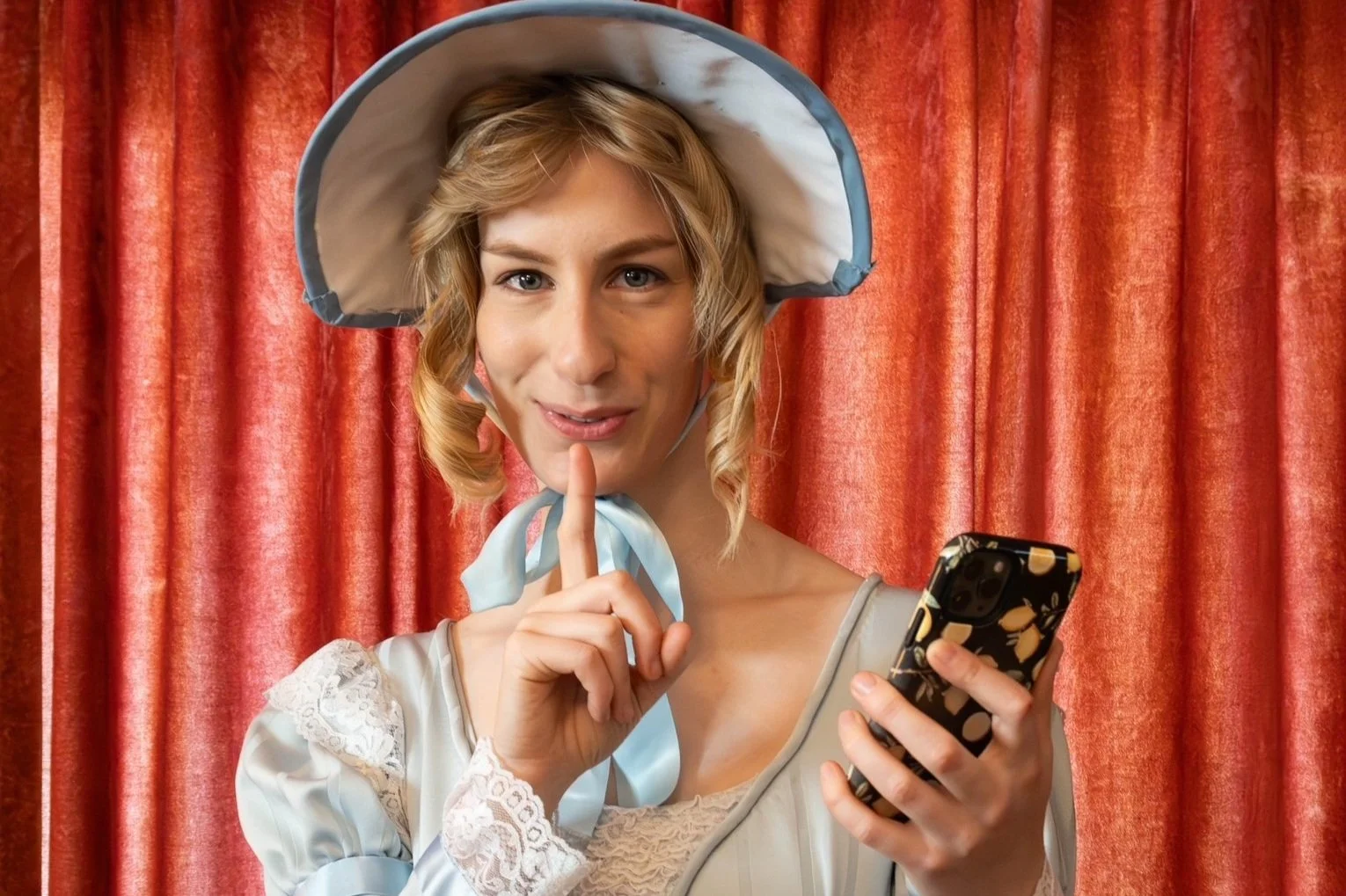Théâtre la Seizième announces 50th-anniversary season
Four mainstage shows, a reading series, youth productions, and more mark the French-language theatre’s programming
Cory Haas.
IT’S A BIG year for Théâtre la Seizième artistic and managing director Cory Haas. For one, it’s the company’s 50th anniversary, and for another, it’s his first season of fully programming B.C.’s main French-language professional theatre company.
“It’s a double whammy—no pressure,” Haas says with a laugh in a phone interview with Stir. Of the organization’s milestone five decades, Haas is in all seriousness in awe.
“It’s an incredible legacy, an incredible achievement for any organization,” he says, “let alone a cultural organization, let alone a theatre company in Vancouver. It’s a testament to the Francophone community and to opening up those doors to the Anglophone community and making a place for ourselves here in Vancouver. It’s a testament to the people who have built it into what it is today.”
The theme of la Seizième’s 2024-25 season is one of résonances, with a focus on the past, the present, and the future.
To honour the company’s history, la Seizième is hosting a reading series called ÉCHO(S), where five scripts—one per decade—will be featured. The series kicks off with Violette en avril (1981) on September 7; that’s followed by Robert Lepage’s Polygraph (1992) on January 24 and 25 in collaboration with Pi Theatre, which first introduced Quebecois and Franco-Canadian dramaturgy in English to Vancouver audiences. There’s renowned playwright Michel Tremblay’s À toi, pour toujours, ta Marie-Lou (1975) being shared on February 21 and 22. A reading of the dramedy Lentement la beauté (2009), a coproduction with Albertan neighbors at l’UniThéâtre, happens on March 21. Then there’s Iranian playwright Nassim Soleimanpour’s Lapin blanc, lapin rouge (2016) on May 23 and 24.
“It’s a bit of extra theatre for everyone,” Haas says. “It’s a chance to discover some great scripts that have had a big impact on the company.”
Since its inception, la Seizième has supported the creation of more than 30 projects for adult and young audiences. As for the present, la Seizième is offering four mainstage shows and three productions for youth. The season launches with Koulounisation (September 25 to 28 at Studio 16), a documentary show in French with English surtitles that explores the French occupation of Algeria. It’s set in Algiers, with show creator-performer Salim Djaferi sculpting a piece of plastic as he delves into the realities and effects of colonialism. A co-production of Les Halles de Schaerbeek, Le Rideau de Bruxelles, l’Ancre, and La Ruche Théâtre Royal de Charleroi, the show, further developed and produced by Belgium’s Habemus Papam, takes place during Truth and Reconciliation week.
Je viendrai moins souvent takes place from December 11 to 14 at Studio 16 in French with English surtitles. In this adaptation of her podcast, Quelqu’une d’immortelle, Camille Paré-Poirier brings to life her last conversations with her 92-year-old grandmother, who had been moved to a long-term care facility at the same time the artist moved to Montreal at age 22. In the show created by Montreal’s Centre du Théâtre d’Aujourd’hui, the Quebecois creator conveys the nature of grief and takes an honest look at caregiving.
“She started recording their conversations for four years until her grandmother’s death,” Haas says. “She’s adapted her podcast to the stage and it’s a fascinating play where you hear these conversations; it’s almost like a two-hander even though she’s alone on stage. It starts to follow her grandma as the Alzheimer’s kicks in and she can’t remember her granddaughter and leads to ethical questions if we’re even allowed to be listening to these conversations as her grandma didn’t have a say as her memory started to go. It’s a beautiful, tender story about leaving a legacy. It’s about death and grief, and it’s a delicate show but also a very hard-hitting one.”
De Glace runs from January 31 to February 2 at the Roundhouse Performance Centre in French and English, an immersive work by L’eau du bain theatre company that incorporates a sensory system to blur the boundaries between the stage and the audience. Presented in partnership with PuSh International Performing Arts Festival and Vancouver International Children’s Festival, the play is based on a Norwegian tale and is set in a frozen landscape in the heart of winter. The theatre is completely filled with nontoxic fog and audiences wear headphones for 3D sound.
“You get transported to an ice forest,” Haas says. “It’s a mesmerizing experience; it’s disorienting at times. It takes you through a frostbitten Norwegian landscape to talk about friendship. It’s an out-of-the-ordinary experience and a family-friendly show.”
From April 30 to May 10 at Studio 16 in French with English surtitles, it’s Ce que je sais de vrai, which depicts the complicated nature of family and marriage through the eyes of four siblings struggling to define who they are beyond what their parents expect of them. Haas translates from English and directs the script by Andrew Bovell.
“It’s a play I saw while I was living in London,” Haas relates. “It’s about a family going through some very intense life experiences and it’s also an opportunity for me to allow a maximum number of actors to work on-stage. There are six actors on stage, which is rare for la Seizième, including Andrew Wheeler. It’s a beautiful play about family that interrogates whether it’s possible to love too much.”
Theatre La Seizième also has young audiences programming, with Une petite fête for kids aged four to eight years old running March 8 and 9, a fun production by Montreal’s Le Carrousel akin to a cabaret. Au Grand Jour, for those aged 13 and up, which is about bullying and homophobia, is touring B.C. secondary schools throughout the spring and playing at Studio 16 on April 5. Quand Maman Sourit is for kids in Grades 1 to 5, a play by Edmonton’s l’UniThéâtre exploring change and the emotions that accompany it, which tours elementary schools in late spring.
As it looks to the future, Théâtre la Seizième is supporting works by up-and-coming playwrights, giving local audiences a chance to engage with some of tomorrow’s talents.
"We’re hoping to multiply the opportunities where people will be able to discover some emerging artists working with a new idea to support the future of theatre making here in B.C. and in Canada,” Haas says. ![]()

























